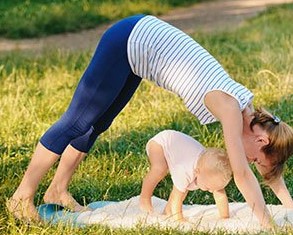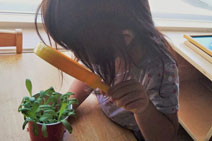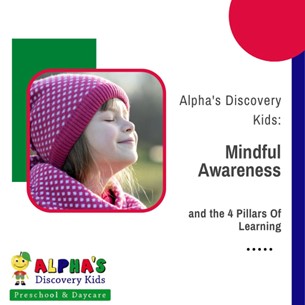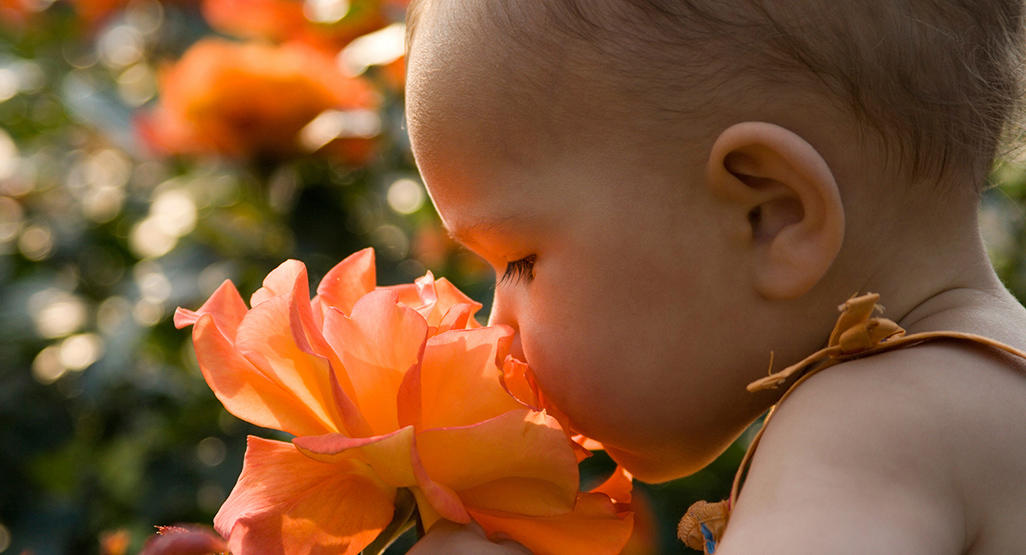Building Resilience in Young Children: Helping Them Navigate Challenges and Setbacks
Building Resilience in Young Children: Helping Them Navigate Challenges and Setbacks
by Susie Beghin, RECE, Founder of Alpha’s Discovery Kids
At Alpha’s Discovery Kids, we believe that resilience is a cornerstone of healthy development. Resilience is the ability to bounce back from setbacks, adapt to change, and keep going in the face of adversity. Developing this vital skill early in life helps children navigate the inevitable challenges and setbacks they will encounter. As parents and educators, we play a crucial role in helping children develop the resilience they need to thrive. By fostering resilience in young children, we equip them with the skills to handle stress, overcome obstacles, and maintain a positive outlook even when things get tough. This foundation is essential for their overall well-being and success in life.
Here are a few ideas and strategies for building resilience in young children, ensuring they are prepared to face life’s challenges with confidence and determination.
- Foster a Secure Attachment
A secure attachment between a child and their caregivers forms the foundation for resilience. When children feel safe, loved, and supported, they are more likely to explore their environment and take healthy risks. Consistent, responsive caregiving helps children develop trust and a sense of security.
- Encourage Independence and Problem-Solving
Allowing children to solve problems on their own encourages independence and critical thinking. When children face challenges, guide them through the problem-solving process rather than providing immediate solutions. Ask open-ended questions that prompt them to think about different strategies and potential outcomes. This approach not only builds problem-solving skills but also fosters a sense of competence and confidence.

- Model Resilient Behavior
Children learn by observing the adults around them. Model resilient behavior by demonstrating how to handle stress, setbacks, and disappointment in a positive and constructive manner. Share stories about times when you faced challenges and how you overcame them. By showing children that it is normal to experience difficulties and that they can be managed, you help them develop a resilient mindset.
4. Promote a Growth Mindset
A growth mindset is the belief that abilities and intelligence can be developed through effort and persistence. Encourage children to view challenges as opportunities for learning and growth rather than as threats to their self-esteem. Praise their efforts rather than just their achievements. This helps children understand that their abilities can improve with practice and dedication, making them more likely to persist in the face of difficulties.
5. Teach Emotional Regulation
Helping children understand and manage their emotions is crucial for resilience. Teach them to recognize and name their feelings, and provide them with strategies to cope with negative emotions, such as deep breathing, counting to ten, or taking a break.
- Create Opportunities for Mastery
Providing children with opportunities to succeed and master new skills builds their confidence and resilience. Set achievable goals and celebrate their successes, no matter how small. This sense of accomplishment reinforces the belief that they can overcome challenges and achieve their goals through effort and perseverance.
7. Encourage Positive Relationships
Strong social connections are a key component of resilience. Encourage children to build positive relationships with their peers, teachers, and family members. Teach them the importance of empathy, kindness, and cooperation.
- Establish Consistent Routines
Routines provide a sense of stability and predictability, which is particularly important for young children. Consistent routines help children feel secure and understand what to expect, making it easier for them to cope with changes and challenges. Ensure that routines are flexible enough to accommodate the child’s needs while providing a structured environment that supports their growth and development.
- Encourage Healthy Risk-Taking
Allow children to take age-appropriate risks and learn from their experiences. Whether it’s climbing a new piece of playground equipment, trying a new activity, or making a new friend, healthy risk-taking helps children build confidence and resilience.
- Promote Mindfulness and Relaxation
Mindfulness and relaxation techniques can help children manage stress and build resilience. Teach them simple mindfulness exercises, such as deep breathing, guided imagery, or progressive muscle relaxation. These practices can help children stay calm and focused, even in challenging situations.
Building resilience in young children is a vital part of helping them navigate the challenges and setbacks they will face throughout their lives. At Alpha’s Discovery Kids, we are committed to creating a nurturing environment that supports the development of resilient, confident, and capable children. By fostering secure attachments, encouraging independence, modeling resilient behavior, promoting a growth mindset, and teaching emotional regulation, we can help children build the skills they need to thrive. Through positive relationships, consistent routines, healthy risk-taking, and mindfulness practices, we equip them with the tools they need to face life’s challenges with confidence and resilience.
Mindful Parenting: Promoting Calmness, Patience, and Connection with Your Children
Mindful Parenting: Promoting Calmness, Patience, and Connection with Your Children
by Susie Beghin, RECE, Founder of Alpha’s Discovery Kids
Have you ever spent hours scouring the internet for parenting tips, seeking solutions to the daily challenges and uncertainties you face? Parenting can often feel like an overwhelming task filled with constant demands and pressures. As a mother and an Early Childhood Education (ECE) educator, I empathize with these pressures firsthand. That’s why I believe mindfulness is so crucial, not only for children but also for us adults. From my conversations with many parents, I know that mindful parenting, which integrates calmness, patience, and a deep connection with our children, is of utmost importance.
Mindful parenting involves being fully present and engaged with your children, fostering a deep sense of awareness and connection. It’s about slowing down, appreciating the moment, and responding to your child’s needs with empathy and understanding. Mindfulness in parenting helps create a supportive environment where children feel valued, heard, and loved. This approach not only benefits the children but also promotes the well-being of parents, reducing stress and enhancing the overall family dynamic.
In this blog, I’ll share some tips that I hope you find helpful in incorporating mindful parenting into your daily life. These tips are designed to help you nurture calmness, patience, and a stronger connection with your children, fostering a positive and supportive family environment.

Tips to Promote Calmness
- Practice Self-Care: Before you can be present for your children, it’s crucial to take care of yourself. Ensure you are getting enough rest, eating well, and engaging in activities that rejuvenate you. Self-care isn’t selfish; it’s necessary for maintaining your well-being and being the best parent you can be.
- Breathing Exercises: Simple breathing exercises can help both you and your children manage stress and stay calm. Practice deep breathing techniques together, especially during moments of tension. Inhale deeply through the nose, hold for a few seconds, and exhale slowly through the mouth.
- Create a Calm Environment: Your home environment significantly affects your family’s mood and behavior. Keep your living space organized and clutter-free to create a sense of tranquility. Soft lighting, calming music, and incorporating natural elements can also contribute to a peaceful atmosphere.
Tips to Promote Patience
- Practice Mindfulness Meditation: Regular mindfulness meditation can help you develop greater patience. It trains your mind to stay focused on the present moment and reduces impulsive reactions. Even a few minutes of meditation each day can make a significant difference.
- Empathize with Your Child: When your child is acting out, try to see the situation from their perspective. Understanding their feelings and frustrations can help you respond with empathy rather than impatience. Remember, children are still learning how to navigate their emotions and the world around them.
- Set Realistic Expectations: Recognize that children are still developing their skills and may not always meet your expectations. Adjusting your expectations to their developmental level can reduce frustration and help you respond more patiently.
Tips to Promote Connection
- Engage in Shared Activities: Spend quality time with your children doing activities they enjoy. This could be reading together, playing games, or simply talking. Shared activities foster a strong bond and show your children that you value spending time with them.
- Listen Actively: Active listening involves giving your full attention to your child when they speak. Make eye contact, nod, and respond appropriately to show that you are engaged in the conversation. This practice helps your child feel heard and understood.
- Express Love and Appreciation: Regularly express your love and appreciation for your children. Positive affirmations, hugs, and kind words go a long way in building a strong emotional connection. Let your children know that they are loved unconditionally.
Mindful parenting is a journey that requires practice and patience, but the rewards are profound. By incorporating mindfulness into your parenting approach, you can promote calmness, patience, and a deep connection with your children. Remember to take care of yourself, practice empathy, and engage in meaningful activities with your children. These practices will help create a supportive and loving environment where your children can thrive.
For more insights and practical tips on fostering your child’s development through play and mindfulness, I invite you to explore my book, Learn to Play. It’s a comprehensive guide designed to help parents and educators provide the best start in life for their children.
By adopting these mindful practices, we can transform our parenting approach, ensuring that we raise happy, healthy, and well-rounded children.
Fostering Mindful Awareness in the Early Years
Fostering Mindful Awareness in the Early Years
by Susie Beghin, RECE, Founder of Alpha’s Discovery Kids
As I wrote my book, ‘Learn To Play’, my primary mission always centered around one core principle: providing children with the most exceptional start in life. And in my role as a mother and Early Childhood Educator, I have an unwavering commitment to help our children develop the critical skills essential to their lifelong success.
Parents and caregivers hold a unique position as the primary educators in a child’s life. At Alpha’s Discovery Kids, we’ve made it our goal to complement and enhance the invaluable work you’re already doing at home. We achieve this by expertly guiding children through our Four Pillars of Learning, ensuring that their learning experiences are not just educational but deeply meaningful.
Each pillar contributes to a well-rounded and holistic educational experience. Our pillars consist of Language & Literacy, STEAM (Science, Technology, Engineering, Art, and Math), Physical Activity & Nutrition, and Mindful Awareness,

Mindful Awareness
Mindfulness, at its core, is like a gentle embrace of the present moment, both inside and out. It’s about purposefully tuning into what’s happening right now without any judgment or the weight of desiring things to be different.
Mindfulness isn’t just a tool for grown-ups seeking to reduce stress, boost their well-being, and find their way back to calm amidst life’s storms. Its soothing benefits extend to the world of children, where worries and mental health concerns are increasingly common. By introducing mindfulness practices to children, we can offer them the same mental health gifts that adults enjoy. And, as an added bonus, it helps to nurture deeper connections between adults and kids, fostering open communication, empathy, and unwavering emotional support.
One of the most profound gifts that mindfulness imparts to children is the development of self-regulation skills. They learn how to navigate challenging situations, maintain composure, and return to a state of tranquility even in the midst of turmoil. These skills are instrumental in managing emotions, staying focused, paying attention, and blocking out distractions.
It’s quite fascinating when you watch babies and little kids. You’ll see something remarkable: they’re really good at being in the here and now. Children (usually under 4 years old) are experts at this. They don’t worry about what happened before, and they don’t fuss about what’s coming next. They simply live in the moment without making things too complicated. But as they get older, this natural skill often fades away. That’s where we, as parents and teachers, come in. Our job is to help them hold onto this wonderful ability.
The journey begins with us – the adults. We cannot effectively teach mindfulness if we are not willing to embrace it ourselves. To nurture mindfulness in our children, we first become mindful parents and educators. This means immersing ourselves in the practice and reaping the benefits it offers. Try being fully present with your child, as this helps them feel acknowledged and valued, nurturing their overall development. Active listening goes beyond just hearing words; it involves understanding the emotions, needs, and feelings behind what they say. Children often express themselves through their emotions, not just their words.

At Alpha’s Discovery Kids, mindful awareness permeates every aspect of our curriculum. We believe that mindfulness is not just an activity; it’s a way of life. It’s a way of being with children, nurturing their growth and well-being.
In our classrooms, mindfulness activities take various forms, providing children with tools to develop and sustain mindfulness throughout their lives. Here are some ways we incorporate mindfulness activities:
- The use of “calming jars” filled with sparkling glitter. By simply shaking and observing the falling sparkles, children engage their senses and return to the present moment.
- Deep breathing exercises, combined with gentle movements. These instill calmness in both body and mind.
- Activities such as the “5 Senses Exercise“, which encourage children to list things they see, touch, hear, smell, and taste, grounding them in the present moment.
- Provide lots of outdoor activity. Surrounded by the serenity of nature, children naturally feel a sense of calm. Nature walks, bird-watching, and cloud-gazing are just a few ways we integrate mindfulness into our outdoor experiences.
At Alpha’s Discovery Kids, mindfulness isn’t just a concept; it’s a philosophy. We understand that the early years of a child’s life are the most pivotal, and our commitment to their holistic development extends to nurturing their mindfulness. As we guide children to notice and appreciate each moment, both inside and out, we’re sowing the seeds for a lifetime of well-being, resilience, and happiness. Each child under our care is cherished as an extension of our own families, and their health and happiness remain our paramount focus.
For more information about early childhood education topics, check out my YouTube series.
To book a tour of one of our centres, please contact us .
Alpha’s Discovery Kids Celebrates Mother’s Day
Alpha’s Discovery Kids Celebrates Mother’s Day
by Susie Beghin, RECE, Founder of Alpha’s Discovery Kids
Mother’s Day is a time for everyone here at Alpha’s Discovery Kids to celebrate moms and everything they do.
But this is also a day that can bring up a whole host of emotions for mothers. So often complex and challenging, motherhood isn’t always flowers and sunshine.
As a mom, I know the mix of happiness, joy, challenges and struggles that mothers face daily. Motherhood is a time to be cherished, but we also have to realize that many mothers face hardship and challenging times as well. Often juggling a career, home and kids, it can sometimes seem overwhelming to hold it all together.
And we never know what other moms are experiencing. So much of what we see and celebrate about Mother’s Day are the positive aspects. But many are experiencing Mother’s Day from a different lens. Emotions can run the gamut, with many moms suffering from fertility challenges and pregnancy issues or dealing with the experience of losing their own mom.
I want to share one message with all moms: you’re doing AMAZING.

Through the: Sleepless nights, Temper tantrums, Mess and disorganization, Learning curves, Exhaustion from overworking, Worry about whether your unborn child will be ok, Worry about whether your child is hitting the “milestones” they should, Unbearable and unimaginable pain of losing a child or Days of trying to explain to your child about the world we live in, you are doing a fantastic job.
As moms, I feel like we never truly “have it down pat .” Instead, most of us go through motherhood as trial and error, figuring it out as we go.
And that’s ok! Especially in today’s world, there is a seemingly constant comparison of how you stack up to other moms. With unrealistic and exceedingly high expectations, social media plays a huge part in feeling like you don’t measure up.
If you head onto any social media platform, you can be bombarded with images of “perfect” moms doing “perfect things .” Whether it’s moms creating perfect packed lunches with heart shaped designs, or birthday celebrations filled with beautiful hand made decorations and arts and crafts, or a perfect March Break vacation at a beautiful destination with perfectly behaved kids, it can foster feelings of failure for many moms.
But here is a gentle reminder that everything you see isn’t always reality. Motherhood isn’t a race. And it isn’t a competition. There is no such thing as “perfect” when it comes to being a mom. And by giving yourself grace and understanding, hopefully, you can realize that you are amazing just the way you are.
I encourage all mothers this Mother’s Day to let their partners or families know what it is you’d like to do to enjoy Mother’s Day. After all – this day is supposed to be about celebrating you!
So whether it’s spending time with family, a little bit of pampering (maybe a spa day), sleeping in, someone else taking over the chores (such as cooking and cleaning) or being showered with appreciation and love, make sure you express what it is that you’d like on this Mother’s Day.
And to celebrate our Alpha’s Discovery Kids Mothers, we have a few special Mother’s Day activities lined up at all our locations.
- Our Moms will receive a heartfelt gift from their little one(s).
- We will offer a Mommy and Me Activity Day on Friday, May 12th, where all our moms can come into the daycare and do a special activity with their child.
- We’ll also offer a little pampering with 10-minute chair massages for each mom.
From our entire Alpha’s Discovery Kids Family, we wish all of our mothers a Happy Mother’s Day!!
For more information about Alpha’s Discovery Kids, please contact us at https://www.alphasdiscoveryclub.com/contact/ or call us at 905-823-8257.
5 Ways to Tap into Your Inner Child
5 Ways to Tap into Your Inner Child
by Susie Beghin, RECE, Founder of Alpha’s Discovery Kids
As an educator, parent, and daycare owner, I feel blessed to be around children every day. Being with children has allowed me to learn how to tap into my own inner child. I have seen firsthand how important it is to my relationship with them. Children tend to engage with me and seek me out when I’m connected to my inner child.
What is the Inner Child?
The Inner Child lives inside you. It can best be described as “child-like”, innocent and free from worry. It can’t be taken away, but it can hide. It’s like a light shining within you that can’t burn out, but it can be temporarily dimmed.
Why tap into your Inner Child?
There are a couple of important reasons to tap into your inner child. One of the main reasons you will want to do this is to feel more joy and energy in your life. Have you ever noticed that children seem to be full of joy most of the time? They tend to smile and laugh more than adults. They are full of energy! The second reason is, as a parent, it will strengthen your relationship with your children. In the book Learn To Play, I state the importance of tapping into your inner child when you are playing with them. It will allow you to influence and educate them in the best way possible. And finally, it’s good for your mental health. When you tap into your inner child, it feels good!
5 Ways to Tap into Your Inner Child
- Spend Time with Children in Play – I found this way to be the easiest. Children naturally will bring out your inner child when you are playing with them. Resist the urge to direct the play. Just follow along with what they are doing. The more you follow, the more your inner child will come out. Let yourself be free in the play. Don’t worry about anything – like making a mess. Don’t be afraid to get silly and don’t worry about what anyone else thinks. Be playful and have fun.
- Be Curious – We can learn how to be curious by observing children. They naturally have a sense of wonder and curiosity about everything. They are learning about their world and there are many new things to learn. A baby is just figuring out how to open and close a kitchen cupboard. Imagine their excitement when they finally get it open! They want to do it repeatedly! Children are like scientists that are always testing a hypothesis. They are curious about how things work. We need to see the world in the same way. We need to be curious and look at the world with the eyes of a child.
- Be Mindful – Being mindful means focusing on the present moment without any judgement. Children are naturally mindful and have a heightened sense of awareness. They tend not to worry about the past or future and are mostly focused on what is happening in the present moment. We can learn a lot from children in this regard. Many of our worries and problems arise when we are too focused on the past or the future. We forget to enjoy the present moment, which is full of opportunities and joy. Want to learn how to be mindful? Click here and watch one of our videos about how to cultivate mindfulness.
- Look up – We live in a world with a lot of distractions and mobile phones have had a huge impact on us. I am guilty of spending too much time looking at my phone and scrolling through social media instead of enjoying the scenery on a drive. I have sat at the dinner table answering a message on my phone instead of engaging in conversation with the people sitting beside me. These same phones that are supposed to connect us to the world, often tend to disconnect us – emotionally. When we look up from our phones, we notice the world around us in a new way. We can’t engage with that world if we are looking down. Our inner child needs us to look up.
- Do something new – One of the best ways to challenge yourself to tap into your inner child is to try something new. Learn a new language, visit a new destination, or try out a new craft. Whatever you do, make sure you haven’t done it before. This will challenge your brain to make new connections the same way a child does when they learn something new.
Once you learn to tap into your inner child, you will be well equipped to engage with you kids and build the relationship. The spark is within you, you just need to let it shine!
Spring Cleaning for the Mind
Spring Cleaning for the Mind
Spring is all about fresh starts and new beginnings, symbolized by growth and new life. It’s a time when we are encouraged to clean our homes and organize our lives. It’s also a great time to give a little attention to renewing your mental health.
At Alpha’s Discovery Kids, we place equal focus on teaching children about mindful awareness and physical health as we do with teaching them academic skills. We do this because we know how important mental health is to the learning process. Engaging in self-care is fundamental to having a clear and refreshed mind. We often forget to take care of ourselves when busy schedules and caring for others is prioritized. We must actively listen to our mind and body and understand that taking time for oneself is not a luxury or an act of selfishness, but rather a critical element for self-growth and fulfillment. Doing this for ourselves is good for those around you too: your family, your co-workers, and it sets a good example for your children. You may wonder how we calm the busyness and begin the self -care process.
Here are 5 steps that can help you clear and refresh your mind, spirit and body.
5 steps to spring cleaning of the mind, spirit and body
1.Reflect
A clear mind begins with self-love and self-reflection. Self-love starts with taking the time to do the work that is needed to be healthier, happier, and more at peace with yourself. Once you have gifted yourself the time, then reflection can begin. How can we connect with what our mind and body are telling us if we don’t pause and listen first? Renewal of the mind, body and spirit is a journey, and is successful when practiced gradually. The good news is that you have already begun by taking the time to read this blog.
Here’s a little activity you can do to start the reflection process:
- Imagine yourself sitting beside the water and the waves are crashing. Try to find your reflection in the water.
- Now, imagine yourself sitting beside the water and there are no waves, and the water is still. Try to find your reflection in the water.
The waves represent your active and stressed mind. You can not see your reflection when the waves are crashing. You must calm the waves and your mind to reflect, refresh and renew. Each of these steps require a mind free of clutter and distractions. Find a quiet place at home or in nature and just take some time for yourself to reflect, without thinking about anything on your to-do list and make sure you don’t have a phone with you or anything else that may distract you.
2.Re-write short-term and long-term goals
It does not matter how big or small. Having a set of goals can give you a sense of purpose in life and guide you toward your desired path.
Short term goals that can bring you joy, and happiness can be as simple as:
- Reconnecting with an old friend by phone or in person.
- Taking more time to do enjoy a nice cup of coffee or tea alone
- Getting a fresh new haircut
- Forgiving someone who has done you wrong
Long term goals that can bring you joy, and happiness can be as simple as:
- Planning or completing a project at home
- Starting a new hobby
- Booking a trip
- Read a book
- Improving a relationship with someone you care about
3.Refresh Physical health
Engaging in physical activity has been scientifically proven to play an important role in sustaining mental health and well-being. This can be as simple as adding one healthy habit to your routine. or removing one unhealthy habit.
Here’s some ideas:
- Drink more water
- Park father away so you get a few more steps
- Put it away – Tidy up as you go
- Make your bed
- Opting for fresh over processed food
- Cutting back on sugar or salt
- Cut back on caffeine or Alcohol
- Take the dog out for a walk or run
- Sign up for a sport you enjoy
4.Renew your spiritual health
Practicing your faith can do wonders for cleansing of the mind. According to wellness coach and author of “The Adrenal Fatigue Solution”, there is a strong connection between faith and mental health. She states “There is one age-old method that can reduce stress levels. It’s free, doesn’t require a prescription, and has zero side effects or drug interactions. You will know it as faith, and millions of people around the world rely on it to see them through hard times. The results are not just anecdotal, there is evidence that it works. Faith and spirituality are abstract concepts, but they can lead to concrete results in mental health improvement and stress reduction.”
Whatever your faith is, spend more time with it. Really connect with it to engage your mind and spirit.
5. Rethink your stress management skills
Learning coping skills that allow you to accept any given situation is an important skill in reducing stress. Knowing which situations make you uncomfortable can minimize distress and encourage better coping behaviors. Making a conscious effort to notice and understand your inner and outer world at this very moment can improve your mental health. Living in the present moment is difficult when you are distracted with tasks and responsibilities. We forget to appreciate life’s precious moments.
Taking time to develop the skills needed to better manage your stress and anxiety can be as simple as:
- Take a brief pause in your day to indulge in a sensory experience (Smell something pleasant or touch something soft)
- Try your best not to dwell on what you can’t control or what is in the past
- Pay attention to what triggers your stress responses and avoid those things if possible
- Take a moment to notice the sun and wind on your face
- Remove physical clutter to clear mental clutter and stress
With these 5 steps to spring cleaning the mind, body and spirit, let’s take a moment to spring into action and be good to ourselves.






